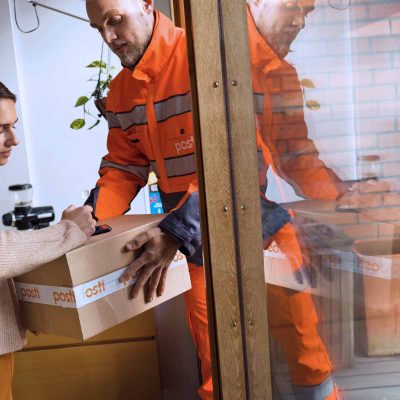What is RPA - Robotic Process Automation?
RPA is software technology that allows automating routine-based tasks in business processes

RPA boosts efficiency in your business processes
RPA (Robotic Process Automation) enables automating repetitive, manual and routine-based tasks in business processes. Automating business processes with RPA-methodology requires a fraction of time, money and effort compared to traditional IT-project development.
What are the benefits of RPA?
Higher productivity, efficiency and cost savings
Better quality and minimized risks
Employees can focus on more valuable work
Better customer experience
Quick to implement and easy to scale
Data security and traceability
RPA offers solutions for different industries and functions
With our extensive industry expertise and deep understanding of business processes, we identify bottlenecks and problems in your company’s workflows. This is how we find processes that are really worth automating and that will have a real impact on your business.
RPA is a versatile tool for process automation
Software robots can operate in the background or assist people in certain areas. They can also manage one or more processes or tasks and they may be trained to prioritize selected tasks. Software robots can be trained in weeks by recording human execution.
ROBOTS CAN OPERATE
Once a year
Once a month
Once a week
Each night
Continously
As requested
ROBOTS CAN USE
MS Office
WWW
Internal & external system
Cloud services
And more
ROBOTS ARE APPLIED
To help with repetitive and mundane work
To do work left undone or do work that could not otherwise be done
To operate new services and opportunities
Software robots act like virtual assistants who free up your employees' time from monotonous routine work to more valuable tasks
What kind of processes are good use cases for RPA?
Software robots can be taught to use the systems your organization applies. They can be trained to use several systems such as accounting systems, ERP, data storage, Power BI or CRM – and they can switch between the applications. Software robots can be implemented within a few weeks or months and they usually pay themselves back within a year.
1. REPORTING
Robot produces routine reports from multiple sources and finds mistakes.
2. LEADING BY DATA
Robot produces novel information from turnaround times and amount of mistakes.
3. INFORMATION PREPROCESSING
Robot joins and enriches the content of different information sources.
4. APPLICATION PROCESSING
Robot checks applications and returns those with errors or faults.
5. MOVING INFORMATION IN BUSINESS PROCESSES
Robot moves information between different business process systems and shares data to multiple systems.
6. SAVING INFORMATION
Robot moves data to various locations
Read our customers' experiences with automation
How do we secure that automation yields results?
Download our free Impact Driven Automation Guide.
Book a free consultation

Tell us more about your RPA needs and possible use cases you have in mind and we will contact you soon.









